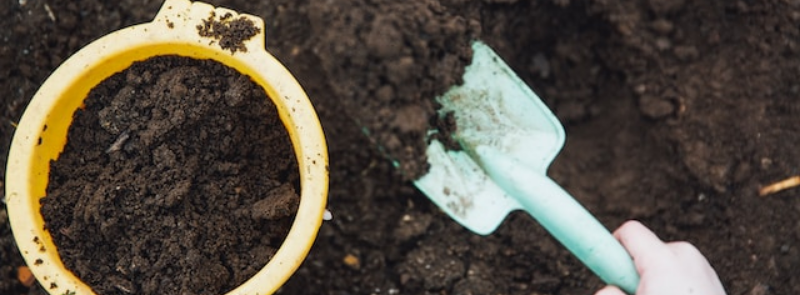
When It Occurs
Every May 29th
Timeline
Days Passed (617)
# Hashtags
#LearnAboutCompostingDay #SustainableWasteManagement
Every year on May 29th, Learn About Composting Day is observed, a tradition established in 2011.
Composting is a natural method of replenishing soil nutrients. This biological process entails the collaboration of microorganisms, bacteria, and insects, breaking down organic materials into a soil-like substance known as compost. This compost, in turn, proves valuable in enhancing soil fertility and promoting plant growth.
History and Background
- Establishment: The "Learn About Composting Day" has become a recognized day for promoting sustainable waste management practices. The day is supported by environmental organizations, gardening groups, and sustainability advocates.
- Purpose: The day aims to educate people about the benefits of composting, provide guidance on how to start composting at home, and encourage sustainable waste management practices.
What is Composting?
Composting is the process of decomposing organic materials, such as food scraps and yard waste, into a nutrient-rich soil amendment called compost. This natural process is facilitated by microorganisms, such as bacteria and fungi, along with macro-organisms like earthworms and insects.
Benefits of Composting
- Reduces Waste: Composting diverts organic waste from landfills, reducing the amount of methane gas produced by decomposing waste in anaerobic conditions.
- Enriches Soil: Compost improves soil structure, increases nutrient content, and enhances water retention, promoting healthier plant growth.
- Reduces Need for Chemical Fertilizers: Compost provides a natural alternative to chemical fertilizers, reducing the reliance on synthetic products that can harm the environment.
- Supports Microbial Activity: Composting promotes the growth of beneficial microorganisms in the soil, which can help suppress plant diseases and pests.
- Lowers Carbon Footprint: By reducing waste and improving soil health, composting contributes to lower carbon emissions and a more sustainable environment.
Types of Composting
- Backyard Composting: Using a compost bin or pile in your backyard to compost kitchen scraps and yard waste.
- Vermicomposting: Using worms (typically red wigglers) to decompose organic waste in a controlled environment, suitable for indoor composting.
- Bokashi Composting: A fermentation process that uses specific microbes to break down organic matter, often used for kitchen scraps.
- Municipal Composting: Community or city-run composting programs that collect and process organic waste from residents.
How to Start Composting
- Choose a Composting Method: Decide which composting method best suits your living situation and needs (backyard composting, vermicomposting, etc.).
- Select a Location: Find a suitable location for your compost bin or pile, ideally in a shaded area with good drainage.
- Gather Materials: Collect a mix of "greens" (nitrogen-rich materials like fruit and vegetable scraps, coffee grounds) and "browns" (carbon-rich materials like leaves, straw, paper).
- Layer Materials: Start your compost pile with a layer of browns, then add greens. Continue layering, maintaining a balance of approximately 3 parts browns to 1 part greens.
- Maintain the Pile: Turn the compost pile regularly to aerate it and speed up decomposition. Keep the pile moist but not waterlogged.
- Monitor and Harvest: After several months, your compost will break down into dark, crumbly soil. Harvest the compost and use it in your garden or potted plants.
Celebrations and Activities
"Learn About Composting Day" is celebrated with various activities aimed at promoting composting and sustainable living:
- Workshops and Seminars: Educational sessions on how to start composting, the benefits of composting, and troubleshooting common composting issues.
- Community Composting Events: Local events where people can learn about composting, get free compost, or participate in community composting projects.
- School Programs: Incorporating composting lessons into school curricula to teach students about environmental stewardship.
- Social Media Campaigns: Sharing composting tips, success stories, and educational content on social media using hashtags like #LearnAboutCompostingDay and #Composting.
- Composting Demonstrations: Live or virtual demonstrations showing how to set up and maintain a compost bin or pile.
- Gardening Activities: Promoting the use of compost in gardening projects to highlight its benefits for plant health and soil quality.
How to Participate
- Attend a Workshop: Join a local or online composting workshop to learn more about the process and benefits of composting.
- Start Composting: Begin composting at home using the method that best suits your lifestyle.
- Share Your Knowledge: Educate friends, family, and community members about composting and encourage them to start composting.
- Support Composting Programs: Advocate for or support municipal composting programs in your community.
- Use Social Media: Share your composting journey, tips, and resources on social media to inspire others.
Significance of Learn About Composting Day
"Learn About Composting Day" highlights the importance of sustainable waste management practices and the positive impact composting can have on the environment. By raising awareness and providing education, the day encourages individuals and communities to adopt composting as a simple yet effective way to reduce waste, enrich soil, and promote a healthier planet. The observance fosters a greater understanding of how our daily actions can contribute to environmental sustainability and inspire collective efforts toward a greener future.


